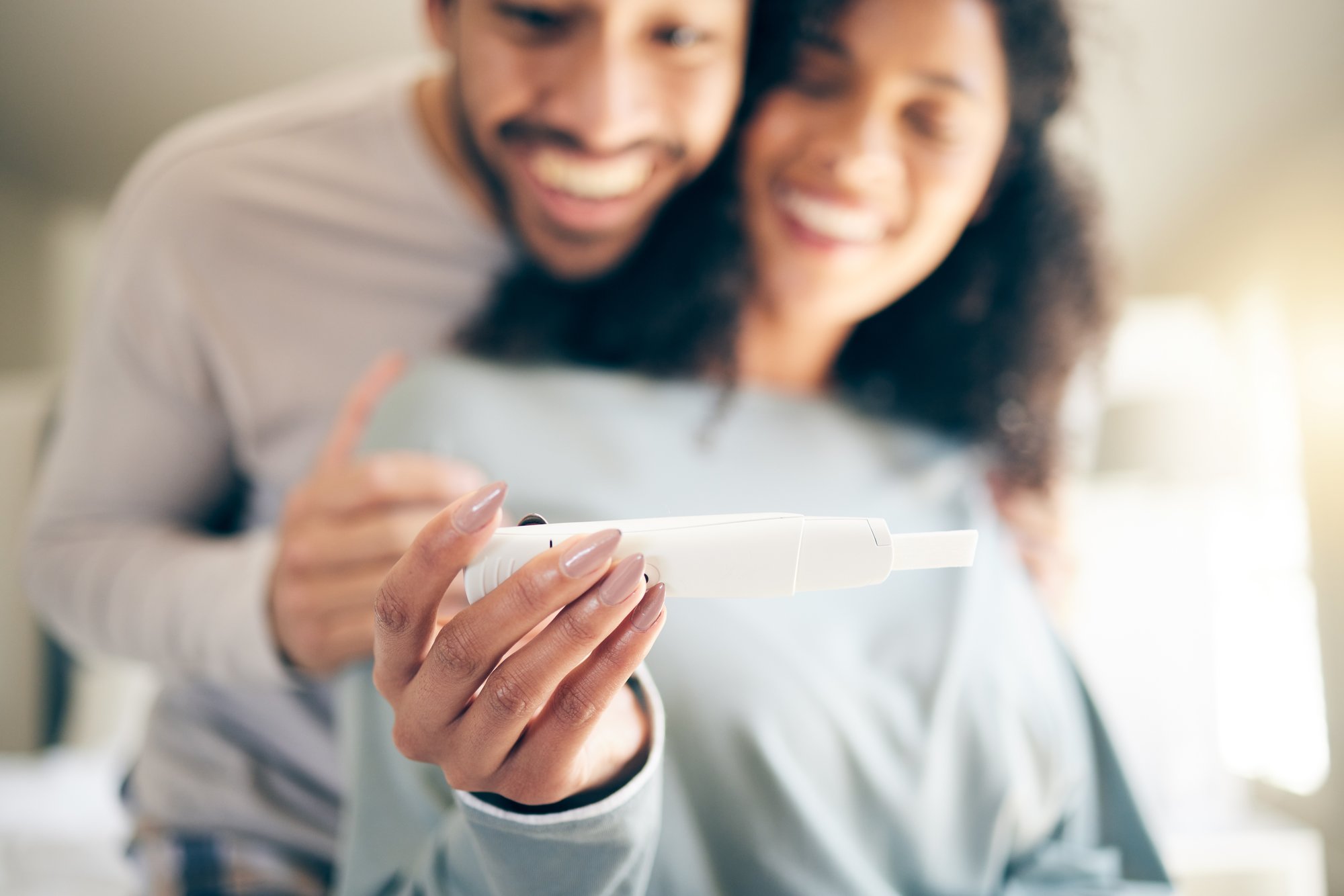FitForMe is trusted by 200,000+ customers and 8000+ healthcare professionals
FitForMe is trusted by 200,000+ customers and 8000+ healthcare professionals

Trustpilot score: 4.4 out of 5
Your weight loss surgery was already a huge step. And now you might be thinking about the next big step: having a child! But how does pregnancy work after a weight loss surgery, for example, if you've had a Gastric Sleeve or Gastric Bypass?
We have gathered and answered frequently asked questions about pregnancy after a weight loss surgery for you.
When to start a pregnancy after weight loss surgery?
The advice is to wait 1 to 1.5 years before trying to conceive after your weight loss surgery. There are several reasons for this:
- Losing weight after pregnancy: You always gain weight during pregnancy. The amount varies from person to person, but on average, it’s about 13 to 26 pounds. If your weight has been stable for at least six months before pregnancy, it will be easier to lose those extra pounds afterward. This increases the chances that you will return to your pre-pregnancy weight.
- Weight loss goal before pregnancy: If you become pregnant too quickly, there’s a chance you haven’t yet reached your weight loss goal yet. That would be a shame after undergoing the weight loss surgery. Therefore, it’s better to be stable at your lower weight for at least six months before starting a pregnancy.
- Toxins: You lose a lot of weight in the first year. During this period, your body breaks down fat cells to get energy. The toxins from these cells then end up in your blood, which isn’t ideal for the baby in your womb. Therefore, it’s wise to wait until you have fewer of these toxins.
What are the additional risks of pregnancy after weight loss surgery?
One of the risks of pregnancy after weight loss surgery is having a deficiency in vitamins and minerals. Due to the surgery, you ingest fewer vitamins and minerals, and your body also absorbs less. This increases the risk of deficiencies, which can affect not only you but also the baby during pregnancy.
Therefore, it’s crucial to consistently take your WLS multivitamins. This helps ensure that you and your baby get what you need. You can read more about this in our blog on pregnancy and multivitamins. If you still have doubts about whether you are getting enough, feel free to discuss this with your doctor.
After a gastric sleeve, you might also experience more stomach acid. This can be exacerbated during pregnancy. If this becomes a problem, it's best to contact your doctor about this.
Are my WLS supplements enough during pregnancy?
It depends on the brand and type you use. Certain vitamins are especially important during pregnancy, regardless of whether you’ve had a weight loss surgery or not.
You can find more information about this in our blog about multivitamins and pregnancy.
How often should I have check-ups?
It’s important to check your vitamin and mineral levels every trimester (three months). If it turns out that you need more vitamins and minerals, they can be recommended in addition to your WLS multivitamins.
The best option is to have these check-ups with your own doctor. They know you best and can give you proper advice on what you need.
Do I need to change my meal routine during pregnancy after weight loss surgery?
No, in principle, you don’t need to change your meal routines. Continue to take your FitForMe WLS multivitamin daily and eat the six small meals you’re used to. If you find that this is still too little, you can increase this to about nine small portions spread throughout the day.
It’s important to ensure you’re getting the right nutrients, such as sufficient protein, calcium, iron, fish oil, and low sugar. You should already be mindful of these nutrients after your weight loss surgery. Now, they are even more essential for your baby’s health. A dietitian can help if you have any doubts.
What If I feel nauseous during pregnancy?
Nausea is quite common, especially in the early stages of pregnancy. A good tip is to start your day with a cracker and a sip of water, right in bed. Ginger tea can also be helpful.
You might also find that you can’t tolerate certain foods as well. Keeping a diary can help you identify if certain meals or ingredients trigger nausea, so you can avoid them temporarily.
Sometimes, nausea can occur because there’s too much time between meals. If this is the case, try spreading your meals throughout the day, such as eating nine small portions daily. Eat at regular intervals and don’t wait until you’re hungry.
If nausea persists, contact your doctor.
Will I gain weight again due to my pregnancy?
Yes, you will gain some weight during pregnancy. This is very healthy and important for your baby, but we understand that this can be challenging for you. The amount of weight gain varies per person, but on average, it’s around 13 to 26 pounds. This can be a bit of a shock, especially since you had the weight loss surgery.
Know that it’s important to start your pregnancy only if you’ve been at a stable weight for six months. Your body will be accustomed to your new, healthier weight, making it easier to lose the extra pounds after your pregnancy.
Important Advice
By continuing to use your WLS multivitamin and having check-ups every trimester, you’re already on the right track during your pregnancy after stomach reduction surgery.
However, everyone is different. There might be other considerations you need to keep in mind. Your own doctor knows best, so if you are pregnant, contact the hospital or clinic where you had the weight loss surgery. This way, you’ll always receive the appropriate care.


